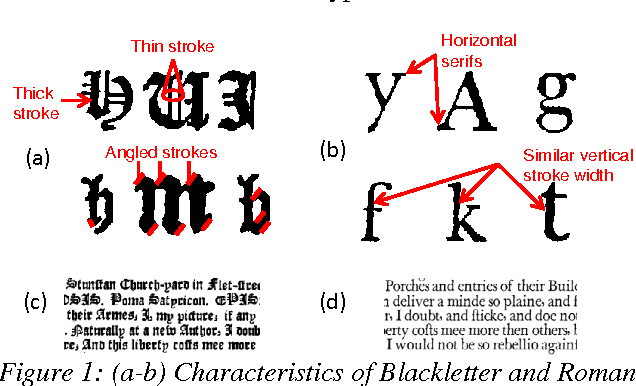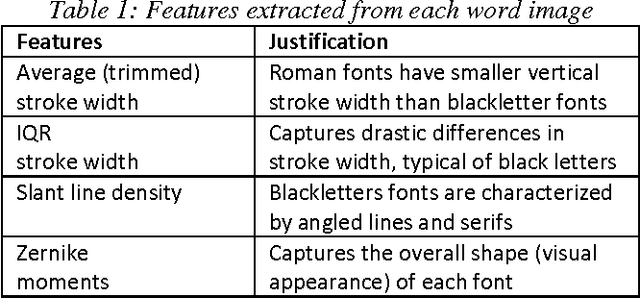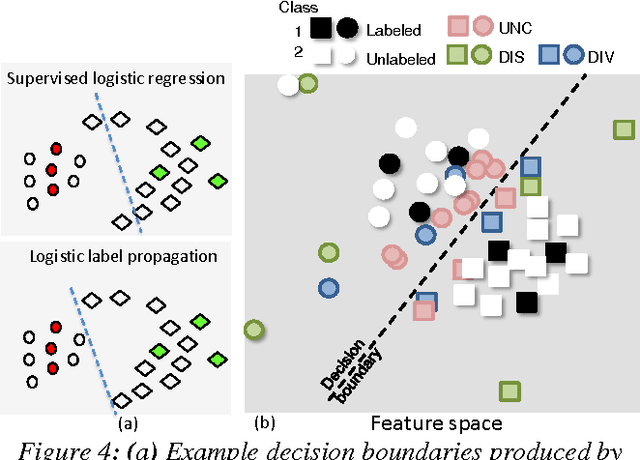Laura Mandell
Font Identification in Historical Documents Using Active Learning
Jan 27, 2016



Abstract:Identifying the type of font (e.g., Roman, Blackletter) used in historical documents can help optical character recognition (OCR) systems produce more accurate text transcriptions. Towards this end, we present an active-learning strategy that can significantly reduce the number of labeled samples needed to train a font classifier. Our approach extracts image-based features that exploit geometric differences between fonts at the word level, and combines them into a bag-of-word representation for each page in a document. We evaluate six sampling strategies based on uncertainty, dissimilarity and diversity criteria, and test them on a database containing over 3,000 historical documents with Blackletter, Roman and Mixed fonts. Our results show that a combination of uncertainty and diversity achieves the highest predictive accuracy (89% of test cases correctly classified) while requiring only a small fraction of the data (17%) to be labeled. We discuss the implications of this result for mass digitization projects of historical documents.
 Add to Chrome
Add to Chrome Add to Firefox
Add to Firefox Add to Edge
Add to Edge